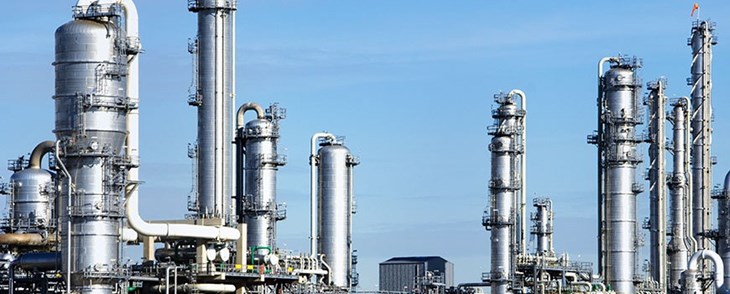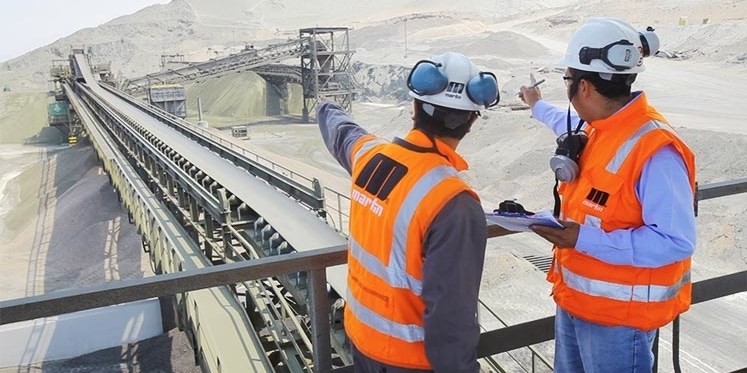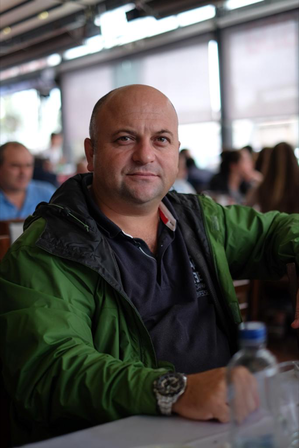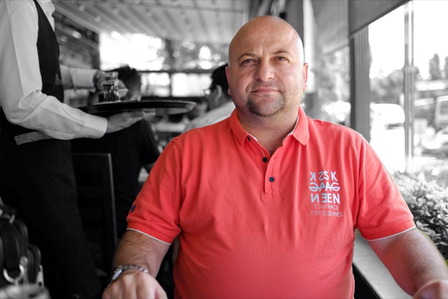When it comes to solving problems with pumps and valves, it is important to consider the industry and the valve or pump type. For Tolsa Arslan, his diverse experience in various industries has helped him to understand the specifics
of pump and valve maintenance and reliability. For example, in the chemical industry, the focus may not be on the valve or the pump at all. When challenges present themselves, perhaps an examination of the mechanical seal is in order.
“Especially in the chemical industry, transferring some chemicals can be difficult and dangerous,” he said. “Most companies prefer pumps with mechanical seals. The most common problem with mechanical seals are problems with the seal’s tightness. This is why I like to solve this problem by recommending and using magnetic
coupling pumps.”
On the other hand, solving problems in the food and beverage industry requires a completely different strategic outlook. “In the food industry, you must choose highly hygienic pumps and systems to transfer food,” Tolsa said. “Some ingredients, like for example, sugar, can be very abrasive for the equipment. If you leave sugar in the pump it can be tremendously harmful for the whole system. In addition, the chemicals used for cleaning the equipment during changeovers can harm the pumps and valves. This is why it is so important to select the exact material and pump and valve types.”
Tolsa now works closely in the cement and mining industries, so there are new challenges and obstacles to consider.
But he leans on his varied experience to help him solve each problem that arises.
Experience
Tolsa’s background and experience is varied and includes hands-on work with pumps and valves. He began his career managing projects for a production line at the Goodyear Tire & Rubber company in Sakarya, Turkey. He then landed a job as the production and quality manager for Camsan Poyraz A.S. in Ordu, Turkey. In this capacity he coordinated and monitored integration projects with international business partners. He also performed analysis and contributed to the development of products according to customer requirements. This included preparation of the production plans in accordance with sales projections and process controls and also performed autonomy maintenance work.
He then worked as a Senior Business Development Specialist for five years with Allianz Insurance in Istanbul where
he worked on cost analysis implementation and the monitorization of the decisions for sub dealers. He was responsible for the determination, decision making, and reporting of the issues that required technical specialties between the company and its suppliers. Tolga then gained experience as the Sales Director for ISS A/S. In this role, he conducted feasibility projects in accordance with customers’ requirements including pricing after the feasibility,
joint management of the processes with the operations department, and the facility management of the Schneider
Electric Gebze factory. He was also responsible for technical maintenance, security, catering, cleaning, and sales to
corporate companies.
For another company, he worked in general sales and management of the fasteners through current sales channels.
It was his responsibility to increase sales performance by finding new sales channels via projects and to prepare
quarterly reporting activities according to the yearly sales plan. As sales manager of the Tapflo Group, he was responsible for supporting executive sales management activities, managing customer-oriented strategic
business development, and preparing quarterly reporting activities according to yearly sales plan. He also provided
communication for sales activities with the global sales management team. He was tasked with increasing sales performance by finding new sales channels via projects, managing local and international supplier companies for alternative products, and managing local dealers for all products and services.
Interesting Projects
Throughout his career, it is the variety of work that has inspired Tolsa. “One of my favorite projects was working on a project to select magnetic coupling pumps for chemistry industry,” he said. “It was challenging and also interesting. Two years ago, I worked with AOOD (Air Operated Double Diaphragm) Pumps for the food industry for a large company which produces Russian salad. The most important thing in that project was to transfer the peas in the salad without any damage. This required precision in the selection and the maintenance of the equipment, including the pumps and valves. I practiced this project for first time in Turkey. I also worked on some very interesting projects for the chemical, food, and fertilizer industries.”

Throughout his career, Tolsa has learned through experience many maintenance and safety tips that would be helpful for other end users who work directly with pumps and valves.
“All equipment, especially pumps, should be cleaned by using suitable chemicals after each process,” he said. “The spare parts should be changed by experienced staff and within the advised period of time. It is crucial that the pump operate without any liquid in it. It is also important that the working area is clean and organized. There are specific zones—Zone1 or Zone 2. It is important to do research to be sure if you are meeting standards and requirements, for example, ATEX has very specific requirements.”
Tolsa also advises end users to maintain good communication with the customer and colleagues. “It is so important during the customer visit to have a good communication with the customer in order to understand the problem properly,” he said. “If you cannot understand it and understand what the customer needs, then you can’t possibly solve the problem.”
For young end users, Tolsa advises to acquire a good understanding of a large variety of pumps and valves and other equipment. “The pumps are used for transferring liquids, so they have a large variety in different companies,” he said. “Engineers and maintenance professionals just beginning to work in the industry should see lots of different projects and gain experience. There are so many different types of pumps in the world— gear pumps, centrifugal pumps, magnetic coupling pumps, AOOD pumps, progressive cavity pumps, hose pumps, self-priming pumps…etc. And there are a lot of different types of valves, too. Each pump and each valve have different features. This is why it is so important that you have to learn everything in detail. The health of the people and the equipment is very important. Selecting the wrong equipment increases expenses and gives harm to people, too.”




